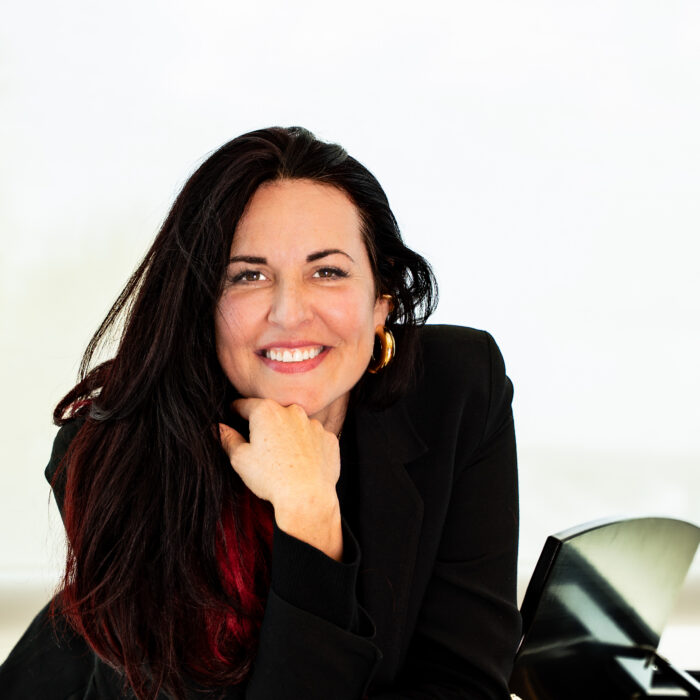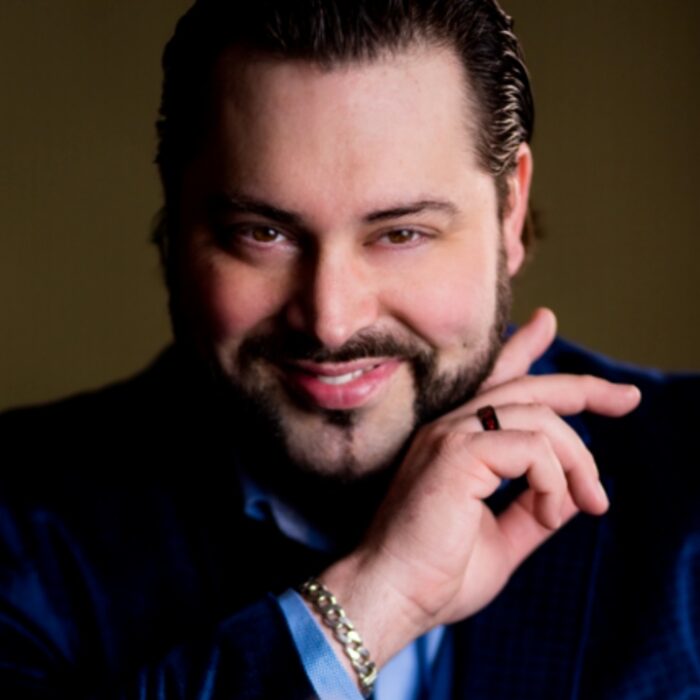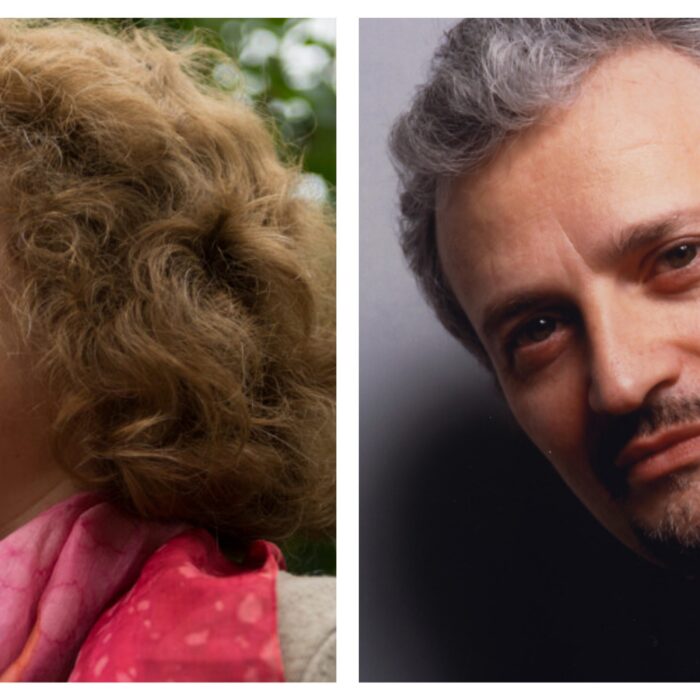
Q & A: Laura Attridge, Aoife Miskelly, & Nazan Fikret on Vache Baroque’s New Production of Pergolesi’s ‘L’Olimpiade’
By Afton Markay(Photo credits: Hughes & Knight)
Sopranos Aoife Miskelly and Nazan Fikret along with director and script writer Laura Attridge spoke with OperaWire about their unique experience in Vache Baroque’s new production of Pergolesi’s “L’Olimpiade.”
This production which coincides with the 2024 Paralympics held in Buckinghamshire, which neighbors the birthplace of the games. Attridge discusses her process of developing an English dialogue, as well as including outdoor elements and inclusive performance practices.
In further appreciation of this year’s Paralympic, a “relaxed performance” will take place on Sept. 7. This abridged version will feature musical highlights and narration. The invitation states “Everyone is welcome to attend, including families with babies or very young children and those with learning disabilities, neurological conditions or movement disorders.”
OperaWire: Does your approach to staging change when you move to an outdoor setting? What should audiences look out for in this production?
Laura Attridge: Any unique venue comes with both benefits and challenges. I often find, though, that challenges or limitations can offer the spark of inspiration through the process of problem-solving. With an outdoor setting you have to really work in synthesis with, and not apologize for, the environment in which the stage space lives: there’s no way to pretend it isn’t there!
This impacts design, of course, creating something that feels enough to feed the audience’s imagination and offer clarity and cohesion, and taking them somewhere really specific even if you can’t totally control the space the way you could indoors. The same applies for lighting design: you have to work with the evolving natural light and lean in to what it offers, instead of being frustrated that you can’t build the lighting states from scratch! It also keeps you honest as a director: your staging needs to be well crafted enough to focus the space by itself and hold the audience’s attention without the aid of the resources you might have in a traditional theatre.
What I hope to achieve with “L’Olimpiade” is the kind of theatrical experience one might expect at a theatre like The Globe, making the most of the outdoor setting, natural light, and direct relationship with the audience, but it just happens to be opera!
OW: What can the opera industry do to make sure relaxed performances are accessible everywhere to everyone?
Nazan Fikret: I have a two year old son, so I think relaxed performances are invaluable and seize the opportunity to bring my son to them wherever possible. I also do a lot of work for Songhaven, who bring concerts to those with dementia and age related illnesses. Their ethos is about relaxed performance and inclusivity, so this subject is something I’m very passionate about. Whenever I can, I jump at the chance to work with education and outreach departments of opera houses- as I find the work so fulfilling.
I think the key is for companies to really invest in them, and I don’t mean financially, I mean with heart and great care to make them a valuable experience for people. It’s not enough to say that they’re doing them, as a box ticking exercise. They need to serve people: story-tell, entice, welcome and not shy away from all the things that make opera challenging for audiences. Most of all it’s about communication with people and teaching them with our music and with our passion for communicating. It’s about leaving ego at the door, across the board, and really communicating with heart and soul. That aside, of course, underfunding them doesn’t cut the mustard either- as it’s very clear when they’re under resourced and corners have been cut. But you can do a lot on a small budget, if you have honorable intentions, and a wise/experienced team of people putting things together. Vache does both! Hurrah.
OW: What can you do as a writer/director to make opera more accessible and approachable for audiences? How have you applied any of these strategies for this production?
LA: I do think one of the most important things a writer and/or director can do on this front is to really consider the experience of the audience, and what kind of journey you’re trying to take them on. I think there’s a really dangerous unspoken assumption, a lot of the time, that we’re just trying to impress an audience (and/or, even worse, trying to impress our peers!), which instantly closes off the opportunity for a real connection between the artist and the recipient of the art, since it centers the ego of the artist. There are all sorts of other much more vital verbs available other than ‘impress’: entertain, move, shock, surprise, galvanize, inspire. These invite a much more immediate and reciprocal relationship between audience and art/artist.
I’m always putting myself in the audience’s shoes to consider how they might receive the show, not only in terms of how I want them to feel emotionally, but also curating their ongoing experience throughout the production. This includes really fundamental things like considering how easy it is to follow a narrative thread or identify a certain character, as well as subtler things like establishing early on whether or not it’s OK to laugh (if you don’t make this clear for an audience ASAP they’ll spend the rest of the show uncertain!), or ensuring that the internal logic of the temporary world I’ve created are consistent, and so on.
Working with this kind of approach, I’ve found, means that an audience can engage with comparatively complex, challenging material without too many barriers because you’ve ensured you stay connected with them at all times. I hope that taking this approach both in the script and staging of “L’Olimpiade” will pay dividends for our audiences at The Vache! And of course, beyond my own contributions on these fronts, our audiences will be treated to a rich pre-show experience on site at The Vache, adding to their experience of the performance itself and hopefully making for a really magical evening.
OW: Please tell me about the process of creating the English dialogue.
LA: One of my favorite aspects of directing is the opportunity it presents to try to get the best out of everything and everyone involved, and so it was such a gift to adapt Metastasio’s Italian recitatives in “L’Olimpiade” into a spoken English dialogue: it offered the chance to get up close and personal with the original material from the start, and using the adaptation process to clarify and enrich what was already in the score.
I started with a straightforward translation of the libretto into English, and began to explore ways to subtly refine the narrative threads, characterization and relationships. Once I was confident I had a strong foundation on that front, I began to consider things like tone – what kind of language was going to suit the piece and our production best? I tried a few versions on for size, and ultimately took my cues both from the sung Italian text, and from the world our designer, Caitlin Abbott, and I were creating together for the staging.
Finally, inspired by Ancient Greek theatre traditions (which also clearly inspired Metastasio himself!), I added a new device: a spoken Chorus, to help guide the audience through the story.
OW: Had you learned this opera before? If so, what was it like to learn the new translation?
Aoife Miskelly: No, I had not even heard of it before! After the role was offered to me, I went to see Vivaldi’s version of “L’Olimpiade” which Irish National Opera did earlier in 2024, which was very useful in terms of character research. The musical style of the two composers isn’t a million miles away either, vocally virtuosic and quasi instrumental in places, so it was really interesting to hear Vivaldi’s different settings of the text.
OW: Is there a difference in your process of learning a lesser-known role than with learning standard repertoire?
AM: It depends on the genre really. If it’s a modern opera, I would approach learning new repertoire quite differently to learning a role from an older era, where almost always, recordings exist. I tend to listen to a handful of recordings before delving into my own technical learning.
NF: The answer to this is yes. In some ways it’s more terrifying as there is less material to draw from, in terms of research and learning by example. However in some ways, it’s more freeing, as one has a real opportunity to put one’s artistic stamp on things. I usually ask a rep to put my role on tape for me, so that I can listen to it going about my business and get used to the style. And then begin learning by translating text, note-bashing and usual technical singing I would do with any other role! I do try to listen to works that are recorded by the same composer, to get into the sound world and style. That really helps!
OW: What do you like about your role?
AM: It’s a much more unusual departure as a soprano playing a trouser role, which are far more often undertaken by mezzo sopranos, so I’m enjoying the physical challenges this is bringing. I’m also enjoying the fascinating changes that my character undergoes; from confident, cool prince with a determined swagger, having no worries in the world, to a man who has realized the many errors of judgement he has committed, ending up a remorseful, broken character, who begs for pity and for his life.
NF: I love the variation of moods and styles of her arias. I have a loving, legato aria, a fiery angry one, an anxious one full of longing and a beautiful duet full of sadness and unresolved conflict. The character also has a huge arc in terms of her own development, starting as quite an entitled and potentially a little “me, me, me.” By the end, she’s shown her wisdom, compassion for others, and much more backbone and depth. It’s a lovely role! And I adore my costume too.
Categories
Interviews

